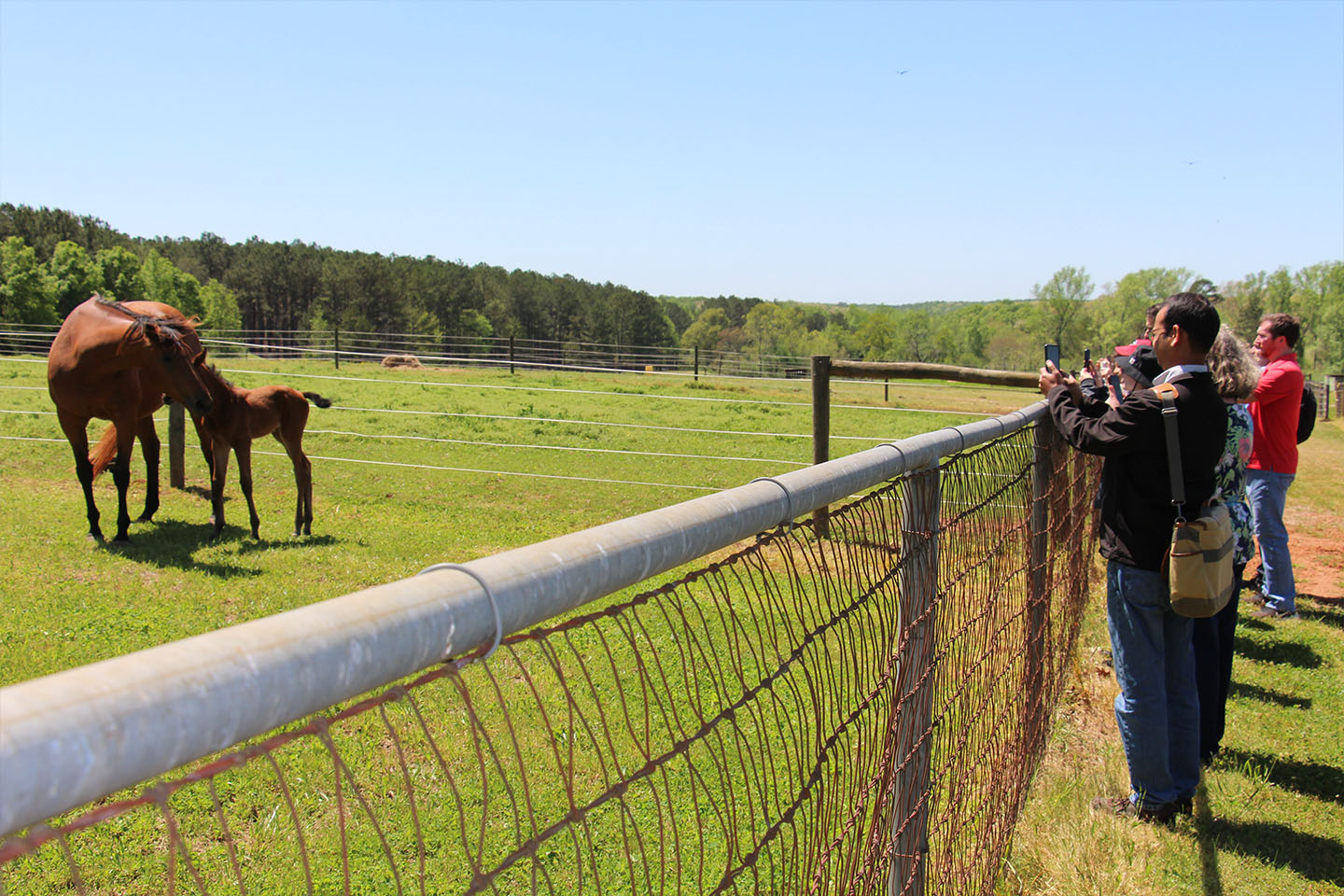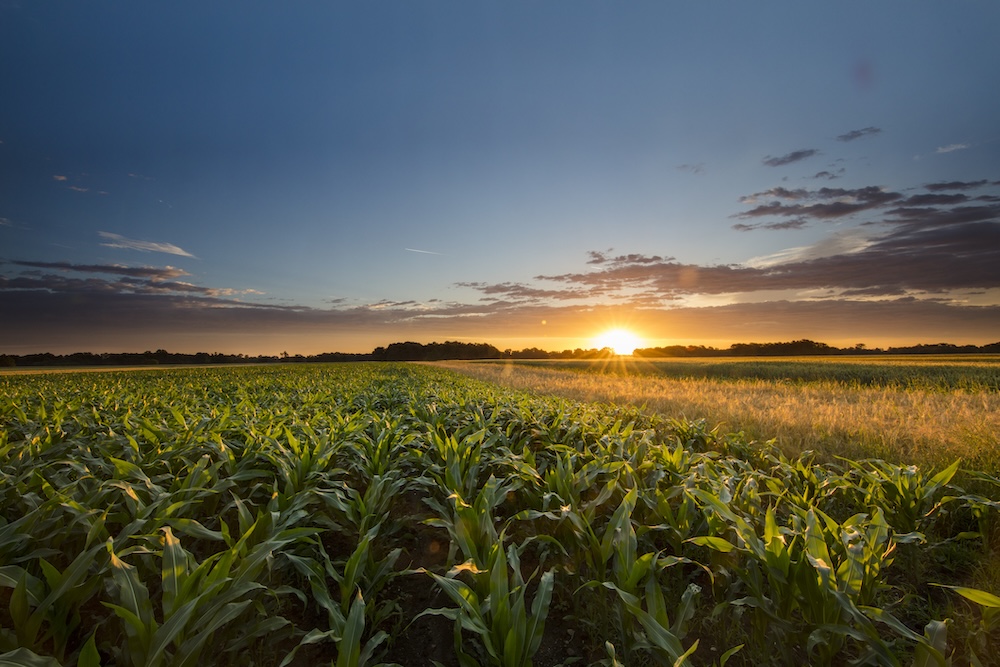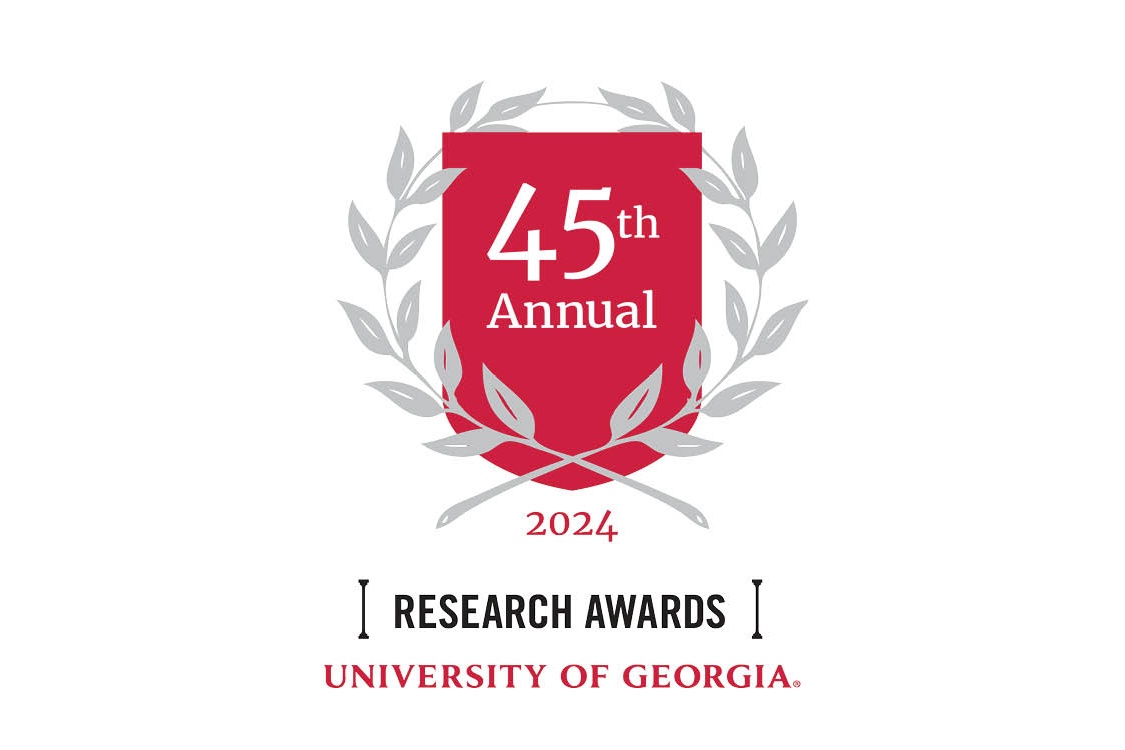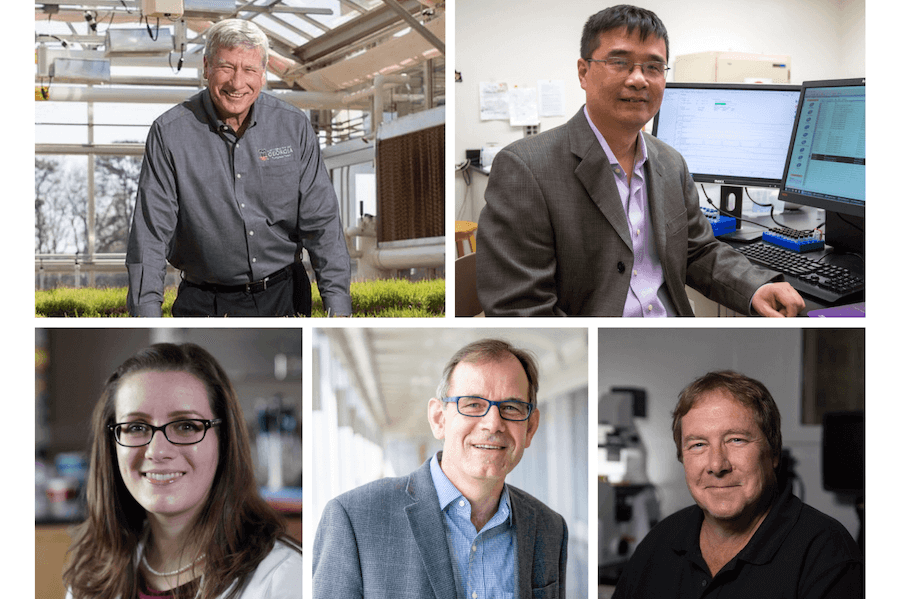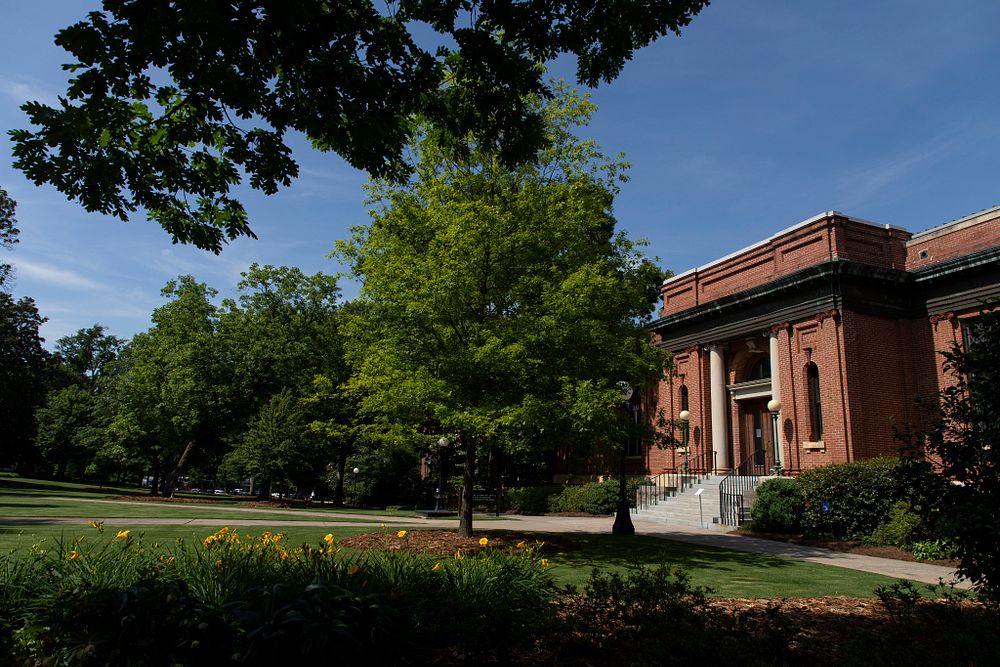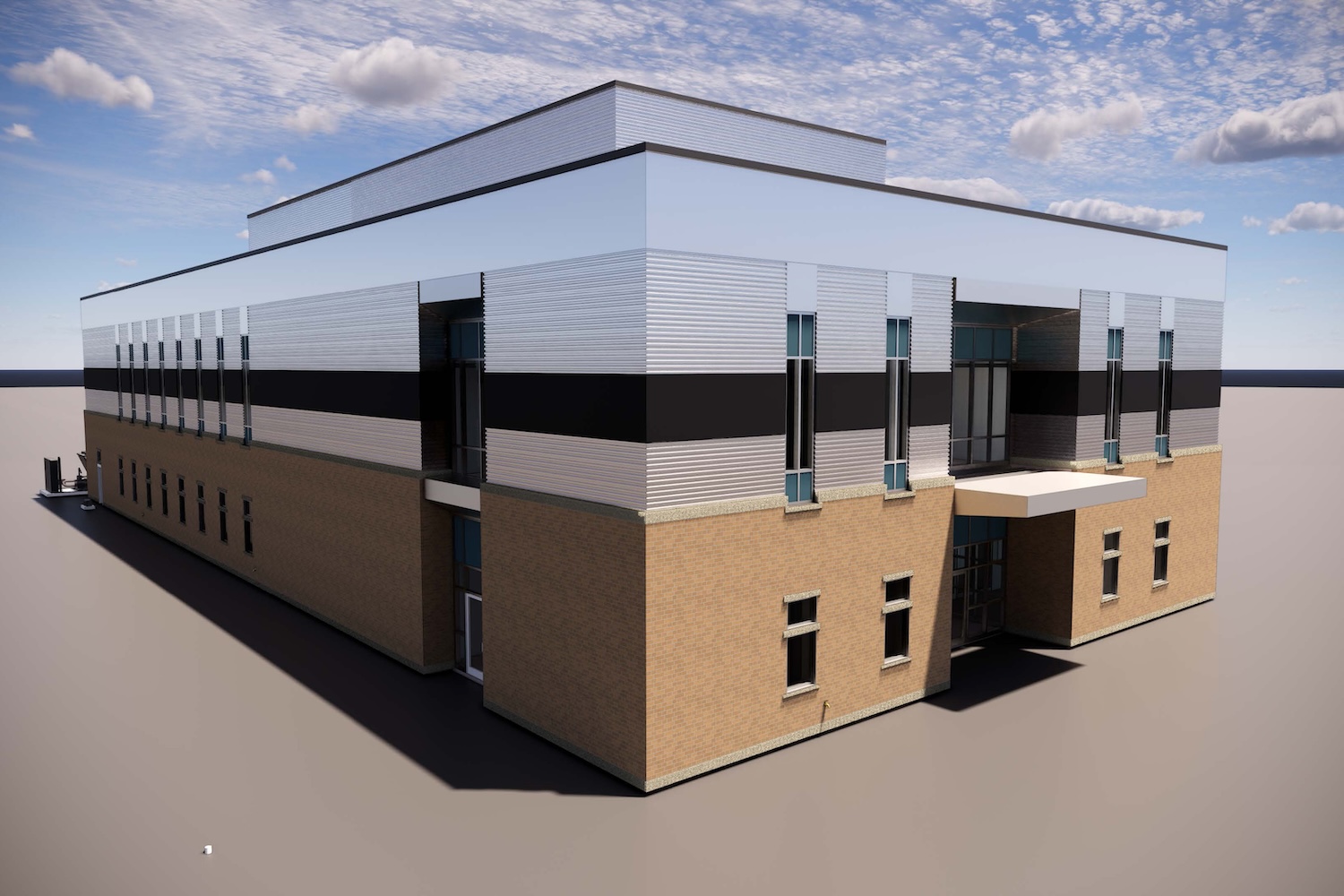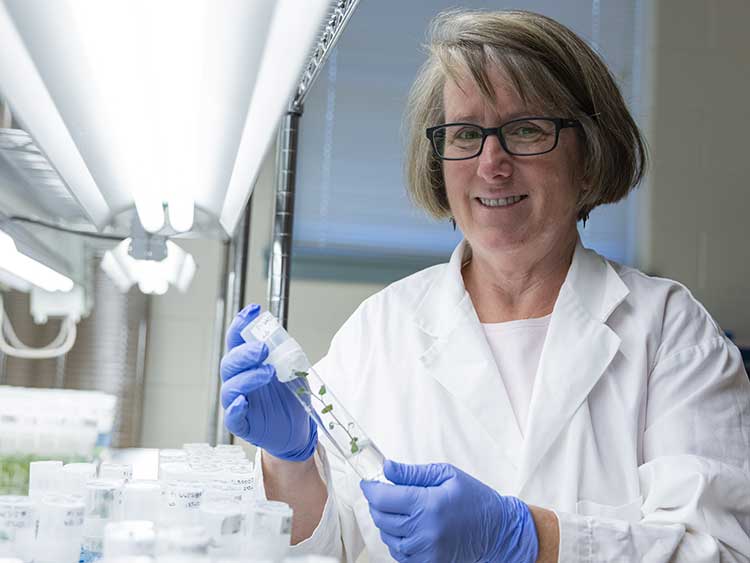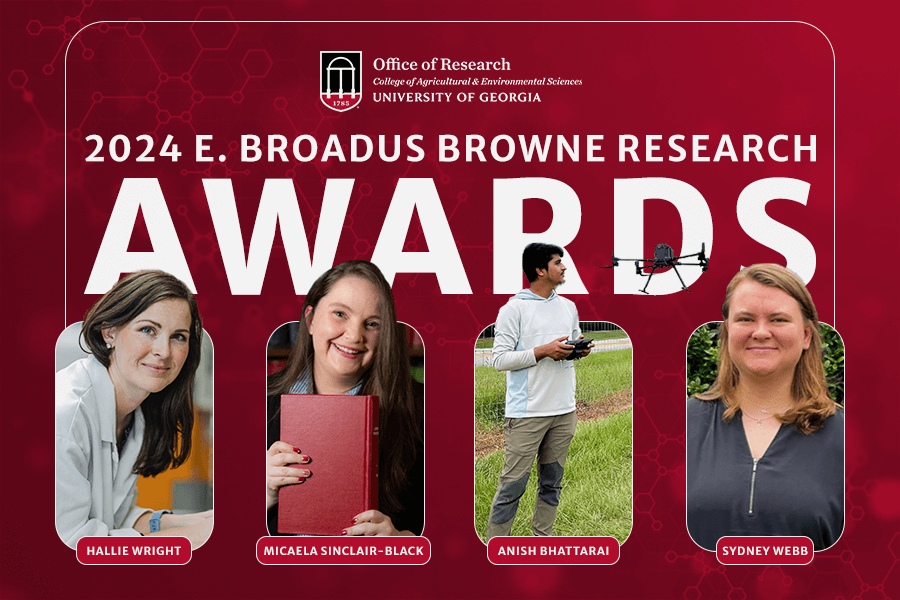 CAES News
CAES News
Research Awards
Two doctoral students and two master’s students in the University of Georgia’s College of Agricultural and Environmental Sciences were honored with awards for outstanding research after placing in the 2024 E. Broadus Browne Research Competition. In recognition of former Georgia Agricultural Experiment Station Director Edmund Broadus Browne, the annual competition highlights some of the best graduate research from departments within the college and challenges contestants with an oral presentation.

